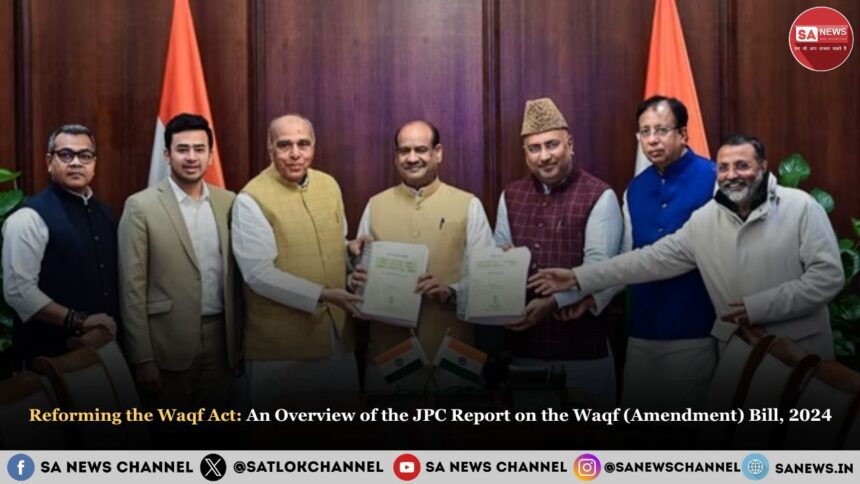The Joint Parliamentary Committee (JPC) has recently presented its much-anticipated report on the Waqf (Amendment) Bill, 2024. The report, which was tabled in the Lok Sabha on February 3, 2025, has sparked extensive discussions and debates across the political spectrum. This blog delves into the key aspects of the report, the proposed amendments, and the ensuing political tensions.
Purpose of the Waqf (Amendment) Bill
The Waqf (Amendment) Bill aims to revise and strengthen the existing Waqf Act of 1995. Waqf properties, which are religious endowments in Islam, have faced issues such as mismanagement, corruption, and illegal encroachments over the years. The proposed amendments seek to address these problems by introducing stringent measures for better governance and accountability.
Key Amendments Proposed
The JPC report outlines 66 amendments to the Waqf Act, of which 14 were adopted after a majority vote. Some of the significant amendments include:
- Digitization of Records: A comprehensive digitization of Waqf properties to ensure transparency and easy access to information.
- Enhanced Audits: Regular and thorough audits to prevent mismanagement and corruption.
- Legal Mechanisms: Strengthened legal frameworks to reclaim properties that have been illegally occupied.
- Transparency Measures: Implementation of transparent processes for the management and administration of Waqf properties.
Inclusion of Marginalized Sections
The bill focuses on inclusivity. For the first time, it states that the benefits of Waqf should go to marginalized groups, such as women, orphans, and the poor. Many people appreciate this move as it promotes social justice.
Opposition’s Dissent
The report has not been without its share of controversies. The opposition parties have submitted dissent notes, arguing that the amendments undermine the rights of the Muslim community and threaten the federal structure of India. They have also claimed that their proposed amendments were rejected without due consideration, leading to a perception of bias and exclusion.
Political Tensions
The tabling of the JPC report has intensified political tensions. The ruling party has been accused of pushing through its agenda without adequate consultation with opposition parties. This has led to heated debates and disruptions in parliamentary proceedings.
Conclusion
The Waqf (Amendment) Bill, 2024, represents a significant effort to reform the management of Waqf properties in India. While the proposed amendments aim to address long-standing issues of mismanagement and corruption, the dissent and political tensions highlight the need for a more inclusive and transparent legislative process. As the bill progresses through the legislative journey, it will be crucial to ensure that the voices of all stakeholders are heard and considered.
Sant Rampal Ji Maharaj’s teachings emphasize transparency and righteousness. He advocates true worship and moral integrity, avoiding dishonesty and corruption. His focus is on living a life of ethical values, ensuring community welfare through transparent actions. He stresses the importance of virtuous company and rejects superstitions that mislead people from true spiritual paths, promoting an honest approach to spirituality and community management.









